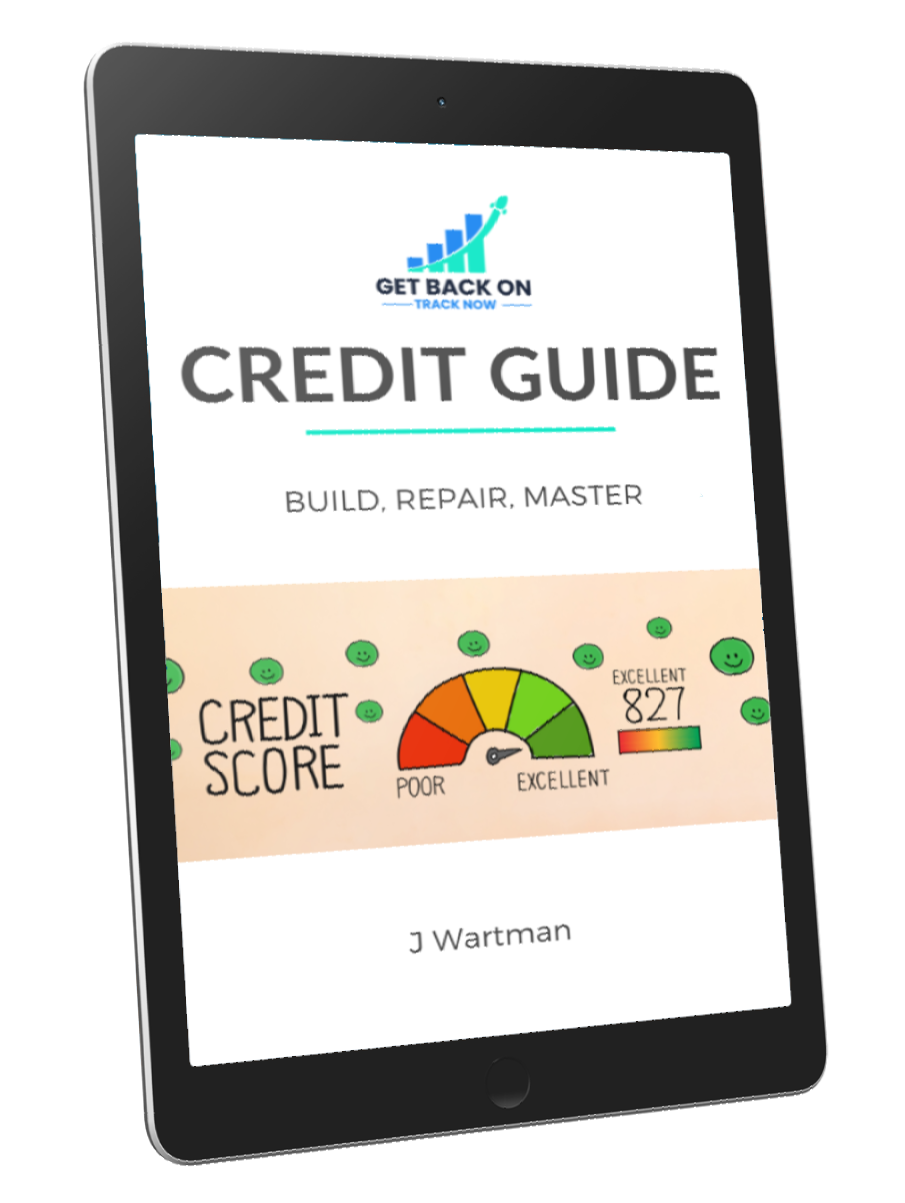Resources
Get a FREE Credit Repair Guide E-Book

Claim your copy of our E-Book
"Credit Guide: Build, Repair, Master"
Absolutely FREE
Contact Us
Frequently Asked Questions

Credit Repair News

Today, I'm going to walk you through a process that is vital for maintaining a healthy credit report: disputing errors. Credit report errors are more common than you might think, and they can negatively affect your credit score. So let's discuss how to spot and dispute these inaccuracies. Review Your Credit Reports : Firstly, obtain your credit reports from all three major bureaus - Experian, Equifax, and TransUnion. You are entitled to a free report from each bureau every year through AnnualCreditReport.com. Carefully review these reports for any discrepancies, such as wrong personal information, incorrect account details, or inaccurate payment histories. Identify the Errors : Once you spot any errors, highlight or note them down. These could range from simple errors like incorrect personal information to more serious ones like accounts that you did not open (which could be a sign of identity theft). Gather Evidence : If you find an error, gather supporting documents that prove it. For instance, this could be account statements, payment records, or copies of correspondence with the creditor. Write a Dispute Letter : Now, write a letter to the credit bureau explaining what the error is and why it's incorrect. Include copies (not originals) of your supporting evidence. There are many templates online to help guide you in drafting this letter. Send Your Dispute : Send your dispute letter by certified mail, "return receipt requested," so you have a record that it was received by the bureau. The credit bureau has 30 days to investigate your dispute. Contact the Creditor : You should also send a similar letter to the creditor that reported the error. They have a responsibility to correct inaccurate information. Follow Up : If the bureau agrees that there was an error, they must correct it and notify all other credit bureaus. If they don't, you can request to include a statement of dispute in your credit file. Maintaining an accurate credit report is essential for your financial health. It requires vigilance, and while it may seem like a lot of work, remember that you're working to protect your financial future.

Bankruptcy is a daunting word, often viewed as the end of one's financial health. However, I am here to tell you that bankruptcy isn't the end; rather, it's a fresh start to rebuild and restore your credit. Here are some steps you can take to do just that: Analyze Your Situation : Begin by reviewing your credit reports from all three major bureaus - Experian, Equifax, and TransUnion. Ensure all the information is correct and that all debts discharged in bankruptcy are showing up as such. Set a Budget : Budgeting is more important than ever after bankruptcy. You need a clear picture of your income and expenses to ensure you're living within your means and can begin to save. Establish an Emergency Fund : Unforeseen expenses can drive people back into debt. Try to save a small amount each month until you have three to six months of living expenses set aside. Pay All Bills On Time : Your payment history is a significant factor in your credit score. It's essential to pay all your bills on time, including utilities, rent, and especially any remaining or new credit obligations. Apply for Secured Credit : A secured credit card, where you deposit money as collateral, can be a good way to start rebuilding your credit. Use it responsibly, and always pay off the balance in full each month. Consider a Credit Builder Loan : Some banks and credit unions offer these small loans to help people rebuild credit. The money you borrow is held by the lender and released to you once the loan is paid off, helping build a positive payment history. Avoid Quick-Fix Solutions : Beware of companies that promise to "erase" your bad credit or to remove bankruptcies from your credit report. These are often scams. Rebuilding credit takes time and patience. Remember, filing for bankruptcy doesn't make you a financial failure. It's an opportunity to start over and rebuild. Take these steps and move forward one day at a time. You can regain control of your financial future.

Misunderstandings about credit often lead to less-than-optimal financial choices. So, today let's bust five common credit myths: Myth: Checking your own credit score hurts it : The truth is that checking your own credit score, or obtaining your own credit report, is considered a soft inquiry and doesn't impact your credit score. It's a wise decision to regularly check your credit score to ensure you're on track with your credit health. Myth: You only have one credit score : In reality, you have multiple credit scores. The three major credit bureaus—Experian, Equifax, and TransUnion—each generate their own credit scores, which might differ due to the unique information each bureau may have. Moreover, different scoring models, like FICO and VantageScore, can produce slightly different scores too. Myth: Closing old credit cards boosts your credit score : Contrary to this popular belief, closing a credit card can potentially lower your credit score, especially if the card has a long history and a high credit limit. The longevity of your credit and your overall credit utilization rate play key roles in your credit score. Myth: You need to carry a balance on your credit cards to build credit : This is a widespread myth that can lead to unnecessary interest charges. You can and should pay off your balance in full each month if you can. You'll still build credit, and you'll save money by not paying interest. Myth: Your income affects your credit score : Your credit score is determined by your credit behavior—not by your income. It's about how you manage your credit, not how much you make. Paying bills on time, keeping your balances low, and having a mix of credit types are what truly matter. Keep these debunked myths in mind as you navigate your credit journey. A clear understanding of credit can help you make better financial decisions.